Regarding Media Mr. Trump recommends “people that have some moral compass”, when asked how he would reform the News Media
By Eileen Fleming
“I recommend people that have some moral compass. I don’t recommend reforms”, Mr. Trump replied when asked how he would reform the news media during his January 11 News Conference
The Media has reported that Donald Trump has chosen his son-in-law Jared Kushner to be White House senior adviser.
The media has only begun to report on how Trump’s pick places the real estate executive in position to sway domestic and foreign policy, particularly Middle East issues and trade negotiations.
The Kushner family foundation has donated $58,500 [between 2011 and 2013] to West Bank settlements.
Under international law every West Bank settlement is illegal because they are built on Palestinian property- as is most of Israel’s Wall.
Most of the Kushner’s $58,500 went to religious yeshivas [Orthodox Jewish schools and seminaries] located outside the Green Line that separates Israel and the West Bank.
On January 5, The Washington Post reported:
According to IRS filings for the Kushner foundation, the family gave $10,000 to the New York-based American Friends of Bet El in 2011, and two more gifts totaling $28,000 in 2013.
Located next to the Palestinian city of Ramallah, the well-established settlement is considered hard-line and ideological. At the organization’s annual dinner this week, one of the star speakers is former Arkansas governor Mike Huckabee, who leads American Christians on pilgrimages to biblical sites in Israel and who would also like to be U.S. ambassador to the country.
The Kushners donated $5,000 to the Etzion Foundation in 2012, and $10,000 in 2013. The Etzion Foundation, which has a U.S. fundraising office in Teaneck, N.J., supports a yeshiva, a kibbutz and a teachers’ school in Gush Etzion, a cluster of settlements between Jerusalem and the Palestinian town of Bethlehem.
The family also gave $5,000 in 2011 to Ohr Torah Stone, a group of schools operating in Israel and the United States and headquartered in the settlement of Efrat. Ohr Torah Stone was founded by Shlomo Riskin, an American-born rabbi who applauded Trump’s election and said he is hopeful the U.S. Embassy will be relocated from Tel Aviv to Jerusalem, a controversial move that successive U.S. presidents have declined to do because it could exacerbate tensions.
The most controversial Kushner family donation was the smallest — $500 in 2012 to the Od Yosef Chai yeshiva in the settlement of Yitzhar near the Palestinian city of Nablus. Extremists in the settlement have launched violent attacks against Palestinians and Israeli security forces. The yeshiva’s dean is a far-right rabbi, Yosef Elitzur, who is notorious for opinion articles in which he seemed to praise “price-tag” attacks as retaliation against Palestinians.
David Friedman, Trump’s real estate lawyer and adviser on Israel admitted it is time to reconsider the two-state formula.
Friedman heads the American Friends of Bet El Yeshiva, which received $10,000 from the Kushner family in 2011 and $28,000 in 2013.
In 2017 Martin Luther King Day falls on Monday, the 16th of January, but he was born on Jan. 15, 1929.
On April 12, 1963, while Martin Luther King was in the Birmingham jail because of his desegregation demonstrations, eight prominent Alabama clergymen published a statement in the local newspapers urging blacks to withdraw their support from Martin Luther King and his demonstrations.
They accused King of being an outsider, using “extreme measures” inciting “hatred and violence” and that King’s demonstrations were “unwise and untimely”, and they contended that racial issues should be “properly pursued in the courts.”
Four days later, Martin Luther King, Jr. wrote his Letter from the Birmingham Jail in reply, which directly challenged his “fellow clergymen.”
I have taken a few liberties with Reverend King’s masterpiece, added a few words of mine in BOLD and offered it as seeds for a Citizens of Conscience Manifesto in my run for US HOUSE in 2012.
I republish it today in response to President-elect Trump’s statement regarding The Media and the need for a moral compass:
I am on the internet because injustice can be expressed here. I am cognizant of the interrelatedness of all communities and states. I cannot sit idly by in comfort and not be concerned about what happens in Israel Gaza Palestine.
Injustice anywhere is a threat to justice everywhere. We are caught in an inescapable network of mutuality, tied in a single garment of destiny. Whatever affects one directly, affects all indirectly. Never again can we afford to live with the narrow, provincial “outside agitator” idea. Anyone who lives in the world can never be considered an outsider anywhere within its bounds.
In any nonviolent campaign there are four basic steps: collection of the facts to determine whether injustices exist; negotiation; examining one’s motives and acting on conscience with direct action.
Nonviolent direct action seeks to create such a crisis and foster such a tension that a community which has constantly refused to negotiate is forced to confront the issue. It seeks so to dramatize the issue that it can no longer be ignored I am not afraid of the word “tension.” I have earnestly opposed violent tension, but there is a type of constructive, nonviolent tension which is necessary for growth.
Too long has The Peace Process been bogged down in a tragic effort to live in monologue rather than dialogue.
Lamentably, it is an historical fact that privileged groups seldom give up their privileges voluntarily. We know through painful experience that freedom is never voluntarily given by the oppressor; it must be demanded by the oppressed. We must come to see that “justice too long delayed is justice denied.”
There are two types of laws: just and unjust. I would be the first to advocate obeying just laws. One has not only a legal but a moral responsibility to obey just laws.
Conversely, one has a moral responsibility to disobey unjust laws. I would agree with St. Augustine that “an unjust law is no law at all.”
A just law is a man made code that squares with the moral law or the law of God. An unjust law is a code that is out of harmony with the moral law. To put it in the terms of St. Thomas Aquinas:
An unjust law is a human law that is not rooted in eternal law and natural law. Any law that uplifts human personality is just. Any law that degrades human personality is unjust.
Segregation [Translates to Apartheid in Afrikaner] distorts the soul and damages the personality. It gives the segregator a false sense of superiority and the segregated a false sense of inferiority.
Segregation, to use the terminology of the Jewish philosopher Martin Buber, substitutes an “I it” relationship for an “I thou” relationship and ends up relegating persons to the status of things.
Hence segregation; apartheid, conscription and military occupation is not only politically, economically and sociologically unsound; it is morally wrong and sinful.
Paul Tillich has said that sin is separation. Is not segregation an existential expression of man’s tragic separation, his awful estrangement, his terrible sinfulness?
An unjust law is a code that a numerical or power majority group compels a minority group to obey but does not make binding on itself. This is difference made legal.
By the same token, a just law is a code that a majority compels a minority to follow and that it is willing to follow itself. This is sameness made legal.
One who breaks an unjust law must do so openly, lovingly, and with a willingness to accept the penalty. I submit that an individual who breaks a law that conscience tells him is unjust, and who willingly accepts the penalty of imprisonment in order to arouse the conscience of the community over its injustice, is in reality expressing the highest respect for law.
Everything Adolf Hitler did in Germany was “legal” and it was “illegal” to aid and comfort a Jew in Hitler’s Germany.
Shallow understanding from people of good will is more frustrating than absolute misunderstanding from people of ill will. Lukewarm acceptance is much more bewildering than outright rejection.
Oppressed people cannot remain oppressed forever and if repressed emotions are not released in nonviolent ways, they will seek expression through violence; this is not a threat but a fact of history. [End of Letter from Birmingham Jail]
In his Letter from Birmingham Jail, King reminded his fellow clergymen that Jesus was an extremist for love who taught his follower’s to:
“Love your enemies, bless them that curse you, do good to them that hate you, and pray for them which despite-fully use you, and persecute you.”
King recalled to his fellow clerics that the Hebrew prophet Amos was an extremist for justice:
“Let justice roll down like waters and righteousness like an ever flowing stream.”
The world is always pulled to change by extremism and our only dilemma is what will we be extremists for: Hate or love, God or State, the preservation of injustice or the extension of justice and equal human rights?
The clinging to the status quo is a form of extremism for all around US are the deep groans from the oppressed, as King addressed from his jail cell:
Few members of the oppressor race can understand the deep groans and passionate yearnings of the oppressed race, and still fewer have the vision to see that injustice must be rooted out by strong, persistent and determined action. Too many others have been more cautious than courageous and have remained silent behind the anesthetizing security of stained glass windows.
There was a time when the church was very powerful–in the time when the early Christians rejoiced at being deemed worthy to suffer for what they believed.
In those days the church was not merely a thermometer that recorded the ideas and principles of popular opinion; it was a thermostat that transformed the mores of society.
Whenever the early Christians entered a town, the people in power became disturbed and immediately sought to convict the Christians for being “disturbers of the peace” and “outside agitators.”‘
Small in number, they were big in commitment and by their effort and example they brought an end to such ancient evils as infanticide and gladiatorial contests.
Things are different now. So often the contemporary church is a weak, ineffectual voice with an uncertain sound. So often it is an arch defender of the status quo. Far from being disturbed by the presence of the church, the power structure of the average community is consoled by the church’s silent–and often even vocal–sanction of things as they are.
If today’s church does not recapture the sacrificial spirit of the early church, it will lose its authenticity, forfeit the loyalty of millions, and be dismissed as an irrelevant social club with no meaning for the twenty-first century.
King wondered if organized religion was too inextricably bound to the status quo to save our nation and the world. He knew that “Any nation that year after year continues to raise the Defense budget while cutting social programs to the neediest is a nation approaching spiritual death.”
We who claim to be Christian are called to love our enemies and that the daughters and sons of God are the peacemakers.
The last words Jesus spoke to his follower’s before his martyrdom was to “put down the sword.”
While he lived the FBI placed wiretaps on Reverend King’s home and office phones and bugged his hotel rooms throughout the country.
By 1967, King had become the country’s most prominent opponent of the Vietnam War, and a staunch critic of U.S. foreign policy, which he deemed militaristic.
In his “Beyond Vietnam” speech delivered at New York’s Riverside Church on April 4, 1967 [a year to the day before he was murdered] King called the United States “the greatest purveyor of violence in the world today.”
In 1986 the federal government ‘honored’ King with a national holiday.
America was founded by visionaries, rebels, agitators, dissidents, fathers, mothers, sisters and brothers who essentially told the King of England to back off of this land and leave US alone.
The most revolutionary minded of all America’s founding fathers was Tom Paine, who articulated a flaming hope birthed in a vision of a new world driven by the spirit of independence from a British occupation.
Tom Paine’s self published forty page pamphlet, “Common Sense” united a disparate and disconnected group of settlers to become compatriots who rose up in rebellion and formed a nation that can only thrive on dissent.
“Soon after I had published the pamphlet ‘Common Sense’ [on Feb. 14, 1776] in America, I saw the exceeding probability that a revolution in the system of government would be followed by a revolution in the system of religion… The world is my country, all mankind are my brethren, and to do good is my religion.”-Thomas Paine
A few timely quotes from MLK:
Darkness cannot drive out darkness; only light can do that. Hate cannot drive out hate; only love can do that.
The ultimate measure of a man is not where he stands in moments of comfort and convenience, but where he stands at times of challenge and controversy.
Faith is taking the first step even when you don’t see the whole staircase.
Our lives begin to end the day we become silent about things that matter.
Injustice anywhere is a threat to justice everywhere.
I look to a day when people will not be judged by the color of their skin, but by the content of their character.
I have decided to stick with love. Hate is too great a burden to bear.
Life’s most persistent and urgent question is, ‘What are you doing for others?
The time is always right to do what is right.
We must learn to live together as brothers or perish together as fools.

-Eileen Fleming, Senior Non-Arab Correspondent and Health Reporter for TADN, ran for US HOUSE in 2012 on a Platform that included ending federal regulations on cannabis, to establish every June 8 to be known as USS LIBERTY Remembrance Day, and to end USA collusion in Israel’s nuclear deceptions and military occupation of Palestine.
Eileen Fleming’s contact information is HERE
- Vanunu still has more nuclear secrets to spill, Israeli court declares - December 29, 2021
- 9/11 and a 20th Reflection of That Day - September 5, 2021
- Mordechai Vanunu: Final Annual Update and this Writers Next Steps - June 19, 2021













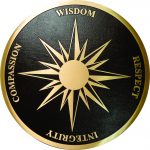


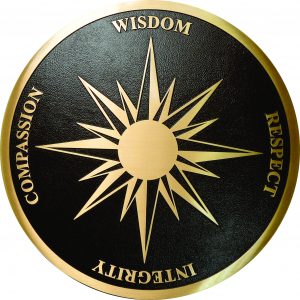


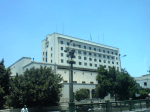
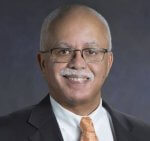



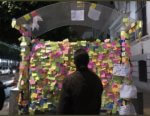


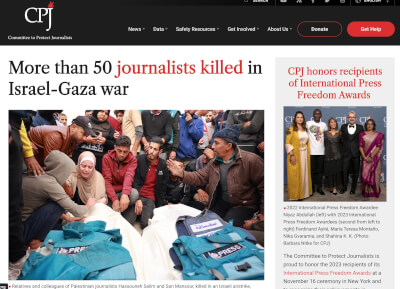
Comment on “Media, Trump and a Moral Compass #MLK #FreePalestine”